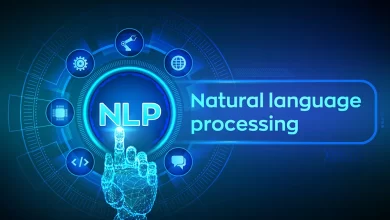10 Types to say Thankyou in Japanese

How To Say Thank You In Japanese
Even if you don’t understand Japanese, it’s good to know how to express your appreciation Thankyou in Japanese.
In this article, we present 10 different Japanese expressions you can use to communicate your Thankyou.
Gain proficiency with the distinctions and subtleties while conveying how appreciative you are in the Japanese language.
One thing you should know is the means by which huge habits and courteousness are in Japan.
From bowing to their elderly folks to keeping their homes and urban communities spotless, the Japanese public are known for their exceptional behavior.
In addition, they never neglect to give credits when they are expected. When you are there, you will before long become accustomed to saying “Thankyou”, “Kindly”, “Excuse me”, and so on In any case,
since most of them don’t talk or understand English, you should say them in Japanese.
Also read: Get Start hiring people with employment agency in Brampton
Thank You In Japanese in 10 Different ways
1. Arigatou (ありがとう)
We are certain you have been comfortable with “Arigatou” particularly assuming you love Japanese TV programs and movies. This is a relaxed approach to saying thankyou to somebody, same as saying “Thanks” in English.
A basic Thank You is the easiest method for showing your appreciation regardless of the event or situation.
Be it when your accomplice opens the vehicle entryway for you or a companion helps you out, you can say “Arigatou” to show your appreciation or appreciation to your companions or even outsiders.
2. Doumo Arigatou (どうもありがとう)
To add a little zest to your Thank You, simply say, “Doumo arigatou gozaimasu.” Adding ‘especially’ shows how really grateful you are. Setting up a grin all over while saying it would cause the collector to feel considerably more joyful.
3. Arigatou gozaimashita (ありがとうございました)
Although in the past tense, this is used when you thank for them who always being there for you or always helping you, like your family, friends and life partner.
4. Arigatou gozaimasu (ありがとうございます)
This is a more formal and cooperative approach to saying Thank You in Japanese.
You can utilize this to thank your manager by saying thanks to him/her for continuously propelling and moving you or use it for your older folks when they accomplish something decent for you.
Assuming you say this with a little head bow, it will show how grateful you are.
At the point when you need to be uncommonly courteous, you can say this to outsiders who surrender their seats for yourself as well as your companions/family on the transport or who open entryways for you.
5. Sumimasen (すみません)
In spite of the fact that it additionally implies Excuse Me or I’m Sorry, Sumimasen can likewise be utilized to say Thank You in various situation where somebody has gone through much difficulty to get or work on something for you.
For example, somebody has even disappeared from nonattendance since you are at the clinic and you want them to deal with you or remain with you.
It’s like saying, “I feel awful that you needed to go through this large number of difficulties for me however thank you kindly.”
6. Osoreirimasu (恐れ入ります)
Utilize this at your work place, particularly when you are addressing a client or a client. This is a significantly more conventional approach to showing your respect.
Suppose your client calls you and orders a greater amount of your product(s), you can utilize this word to say thanks to them for continuously picking you.
7. Hontōni arigataidesu (本当にありがたいです)
Hontōni arigataidesu signifies “I truly like it” in English. Thus, you can involve this when somebody accomplishes something pleasant for yourself and you feel really Thankful.
8. Maemotte kansha shimasu (前もって感謝します)
“Maemotte kansha shimasu” it means Thankyou in advance in English.
Suppose you are ask somebody for some help and you probably won’t be seeing or conversing with them at any point in the near future once more. Previously or subsequent to letting them know what you want from them, you can express gratitude toward them ahead of time.
For example, when you need to say. “Much appreciated ahead of time for dropping the children to school today” to your significant other, you can say, “Maemotte kansha shimasu”.
Also read: Become An English Teacher In Japan
9. Anata no go shinsetsu ni kansha shimasu (貴方のご親切に感謝します)
For example, suppose somebody was doing your shift for you at work since you had influenza and couldn’t go to work. After an “Arigatou”, you can go on with “Anata off limits shinsetsu ni kansha shimasu,” which means “That is extremely sort of you.”
10. Atsu atsuku orei rei o saru mōshi-jō agemasu (厚あつくお礼れいを申もうし上あげます)
“Atsu atsuku orei rei o saru mōshi-jō agemasu” is a considerate approach to saying, “Thankyou” in Japanese to your older folks or boss/chief/director at work or your educators.
As “Atsu atsuku orei rei o saru mōshi-jō agemasu” signifies “I might want to offer my thanks to you” in English. You can involve this in examples when you need to show your appreciation to somebody you gaze upward to or have incredible regard or reverence for.
All things considered, there you go! You have now learned ten methods for saying Thank You in Japanese.
To know more about Japanese language visit our official Akal Japanese Academy.





